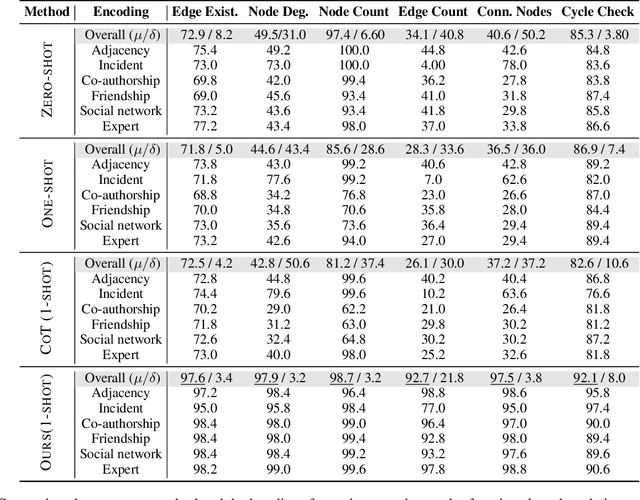CodeGraph: Enhancing Graph Reasoning of LLMs with Code
Paper and Code
Aug 25, 2024



With the increasing popularity of large language models (LLMs), reasoning on basic graph algorithm problems is an essential intermediate step in assessing their abilities to process and infer complex graph reasoning tasks. Existing methods usually convert graph-structured data to textual descriptions and then use LLMs for reasoning and computation. However, LLMs often produce computation errors on arithmetic parts in basic graph algorithm problems, such as counting number of edges. In addition, they struggle to control or understand the output of the reasoning process, raising concerns about whether LLMs are simply guessing. In this paper, we introduce CodeGraph, a method that encodes graph problem solutions as code. The methods solve new graph problems by learning from exemplars, generating programs, and executing them via a program interpreter. Using the few-shot setting, we evaluate CodeGraph with the base LLM being GPT-3.5 Turbo, Llama3-70B Instruct, Mixtral-8x22B Instruct, and Mixtral-8x7B Instruct. Experimental results on six tasks with six graph encoding methods in the GraphQA dataset demonstrate that CodeGraph can boost performance on graph reasoning tasks inside LLMs by 1.3% to 58.6%, depending on the task. Compared to the existing methods, CodeGraph demonstrates strong performance on arithmetic problems in graph tasks and offers a more controllable and interpretable approach to the reasoning process.
 Add to Chrome
Add to Chrome Add to Firefox
Add to Firefox Add to Edge
Add to Edge